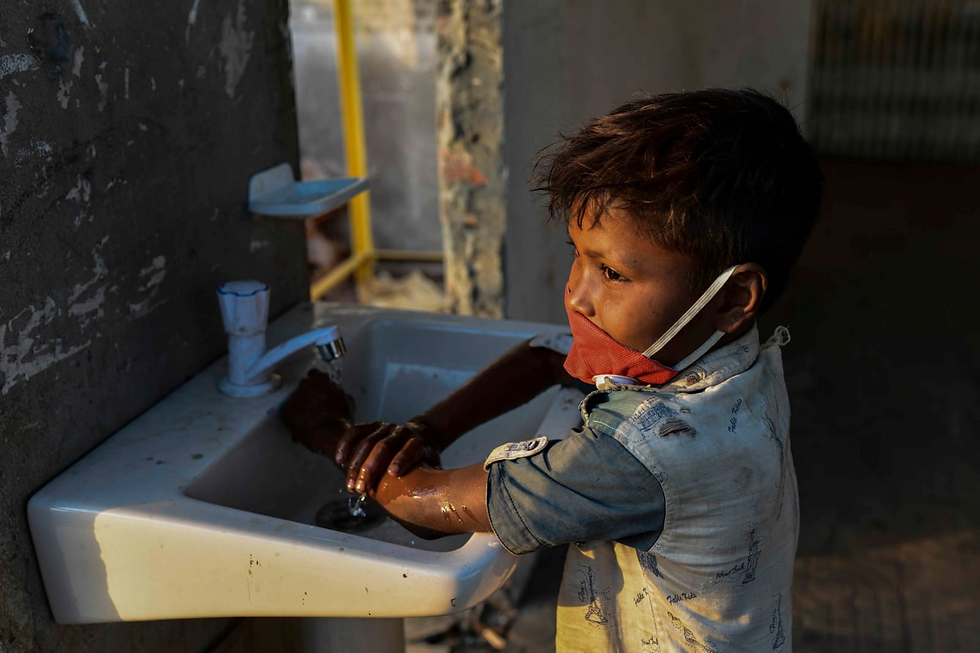
INTRODUCTION
Over 1.5 billion students are out of school, and widespread job and income loss, as well as economic insecurity, are anticipated to increase child labour, sexual exploitation, teen pregnancy, and child marriage rates. This paper discusses important human rights threats to children posed by the COVID-19 pandemic, as well as initiatives governments should take to protect children's rights during the epidemic, minimise its terrible consequences, and benefit children after the crisis has passed.
COVID AFTERMATH
Many children will experience limited or no schooling as a result of the COVID-19 issue or will fall further behind their peers. Due to school closures in at least 188 nations, more than 91 percent of the world's children’s are out of school. The crisis has revealed huge gaps in countries' emergency planning, internet access for children, and learning materials availability. Despite the fact that online learning platforms have received a lot of attention, many public schools are not set up to use them or lack the technology and equipment needed to deliver online instruction. Nearly half of the world's population does not have access to the internet.
As the COVID-19 pandemic overwhelms health systems, children may no longer receive immunizations or have access to life-saving basic health care. Reduced access to treatment during the 2014-2015 Ebola outbreak in West Africa led to dramatic increases in deaths from malaria, HIV/AIDS, and tuberculosis, including among children.
PROTECTING CHILDREN'S RIGHTS
Human Rights Watch urges governments to take urgent measures to protect children’s rights, including by:
● Prioritizing efforts to continue education for all children, using all available technology;
● Providing economic assistance, including cash transfers, to low-income families that will be hit first and hardest, to help them meet basic needs without resorting to child labor or child marriage;
● Minimizing disruptions in children’s access to essential and life-saving healthcare services;
● Increasing efforts to identify children orphaned by COVID-19 and expanding networks of extended family and foster care;
● Expanding public education, awareness campaigns, hotlines, and other services for children at risk of violence in the home or online sexual exploitation;
● Transferring children deprived of liberty to family-based care and ensuring suitable accommodation and sanitation for refugee, migrant, and internally displaced children.
● A rights-respecting response to the COVID-19 crisis will not only alleviate potentially farreaching harm during the pandemic but can also benefit children over the long term, Human Rights Watch said. Expanding internet access for children will generally increase children’s access to information, and their ability to organize and express themselves.
● Children may no longer receive immunizations or have access to life-saving basic health care as the COVID-19 pandemic overwhelms health services. During the 2014-2015 Ebola outbreak in West Africa, reduced access to treatment resulted in huge increases in malaria, HIV/AIDS, and tuberculosis mortality, including among children.
Human Rights Watch calls on governments to act quickly to protect children's rights, including:
● Prioritizing efforts to keep all children in school, utilising all available technology;
● Providing financial aid, such as cash transfers, to low-income families that will be struck the hardest, in order to enable them to fulfil basic necessities without having to resort to child labour or child marriage;
● minimising interruptions in children's access to critical and life-saving healthcare;
● Increasing attempts to identify children who have been orphaned by COVID-19 and extending the number of children who have been orphaned by COVID-19.
THE ADVANTAGES OF A CHILD-RIGHTS APPROACH
The COVID-19 pandemic has exposed serious flaws in many countries' child protection systems, including insufficient healthcare and social support systems, overcrowded detention facilities, and a lack of emergency plans for large-scale school closures. A rights-based approach to the COVID-19 pandemic will not only prevent the pandemic's harshest effects but will also benefit children in the long run. Extending internet access to schools, for example, will improve not only their access to education but also their access to information and their ability to organise and express themselves. Widespread school closures may increase public awareness of the value of education, resulting in more funding for schools and teachers, as well as tougher measures to ensure that the most marginalised children have access to their right to education.
Transferring children out of institutions and detention facilities to help countries transition to family-based, non-custodial settings for children, which have been shown to be healthier and more beneficial for children's development, can also help countries transition to family-based, non-custodial settings for children. The economic crisis associated with COVID-19 may drive governments to expand economic and social rights and social protections for disadvantaged communities and vulnerable families, improving food security and lowering rates of child poverty, child labour, and child marriage in the long run.
The COVID-19 problem poses huge dangers to children. Governments must not only act quickly to safeguard children during the pandemic, but also analyse how their decisions today will best protect children's rights long after the virus is finished.
CONCLUSION
Policymakers can use information regarding the effects of epidemics on parents and children to design ways to help families cope with epidemic/pandemic-related trauma and assure their children's healthy development.
